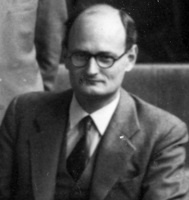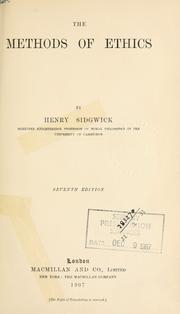Related Research Articles

In ethical philosophy, consequentialism is a class of normative, teleological ethical theories that holds that the consequences of one's conduct are the ultimate basis for judgement about the rightness or wrongness of that conduct. Thus, from a consequentialist standpoint, a morally right act is one that will produce a good outcome. Consequentialism, along with eudaimonism, falls under the broader category of teleological ethics, a group of views which claim that the moral value of any act consists in its tendency to produce things of intrinsic value. Consequentialists hold in general that an act is right if and only if the act will produce, will probably produce, or is intended to produce, a greater balance of good over evil than any available alternative. Different consequentialist theories differ in how they define moral goods, with chief candidates including pleasure, the absence of pain, the satisfaction of one's preferences, and broader notions of the "general good".
Hedonism refers to a family of theories, all of which have in common that pleasure plays a central role in them. Psychological or motivational hedonism claims that human behavior is determined by desires to increase pleasure and to decrease pain. Normative or ethical hedonism, on the other hand, is not about how humans actually act but how humans should act: people should pursue pleasure and avoid pain. Axiological hedonism, which is sometimes treated as a part of ethical hedonism, is the thesis that only pleasure has intrinsic value. Applied to well-being or what is good for someone, it is the thesis that pleasure and suffering are the only components of well-being. These technical definitions of hedonism within philosophy, which are usually seen as respectable schools of thought, have to be distinguished from how the term is used in "everyday language". In that sense, it has a negative connotation, linked to the egoistic pursuit of short-term gratification by indulging in sensory pleasures without regard for the consequences.

John Stuart Mill was an English philosopher, political economist, politician and civil servant. One of the most influential thinkers in the history of classical liberalism, he contributed widely to social theory, political theory, and political economy. Dubbed "the most influential English-speaking philosopher of the nineteenth century" by the Stanford Encyclopedia of Philosophy, he conceived of liberty as justifying the freedom of the individual in opposition to unlimited state and social control.
Normative ethics is the study of ethical behaviour and is the branch of philosophical ethics that investigates questions regarding how one ought to act, in a moral sense.
In ethical philosophy, utilitarianism is a family of normative ethical theories that prescribe actions that maximize happiness and well-being for all affected individuals.

Jeremy Bentham was an English philosopher, jurist, and social reformer regarded as the founder of modern utilitarianism.

Henry Sidgwick was an English utilitarian philosopher and economist. He was the Knightbridge Professor of Moral Philosophy at the University of Cambridge from 1883 until his death, and is best known in philosophy for his utilitarian treatise The Methods of Ethics. He was one of the founders and first president of the Society for Psychical Research and a member of the Metaphysical Society and promoted the higher education of women. His work in economics has also had a lasting influence. In 1875, with Millicent Garrett Fawcett, he co-founded Newnham College, a women-only constituent college of the University of Cambridge. It was the second Cambridge college to admit women, after Girton College. In 1856, Sidgwick joined the Cambridge Apostles intellectual secret society.

Richard Mervyn Hare, usually cited as R. M. Hare, was a British moral philosopher who held the post of White's Professor of Moral Philosophy at the University of Oxford from 1966 until 1983. He subsequently taught for a number of years at the University of Florida. His meta-ethical theories were influential during the second half of the twentieth century.

Virtue ethics is an approach to ethics that treats virtue as central.

Utilitarianism is an 1861 essay written by English philosopher and economist John Stuart Mill, considered to be a classic exposition and defence of utilitarianism in ethics. It was originally published as a series of three separate articles in Fraser's Magazine in 1861 before it was collected and reprinted as a single work in 1863. The essay explains utilitarianism to its readers and addresses the numerous criticism against the theory during Mill's lifetime. It was heavily criticized upon publication; however, since then, Utilitarianism gained significant popularity and has been considered "the most influential philosophical articulation of a liberal humanistic morality that was produced in the nineteenth century."
The Philosophical Radicals were a philosophically minded group of English political radicals in the nineteenth century inspired by Jeremy Bentham (1748–1832) and James Mill (1773–1836). Individuals within this group included Francis Place (1771–1854), George Grote (1794–1871), Joseph Parkes (1796–1865), John Arthur Roebuck (1802–1879), Charles Buller (1806–1848), John Stuart Mill (1806–1873), Edward John Trelawny (1792–1881), and William Molesworth (1810–1855).
Act utilitarianism is a utilitarian theory of ethics that states that a person's act is morally right if and only if it produces the best possible results in that specific situation. Classical utilitarians, including Jeremy Bentham, John Stuart Mill, and Henry Sidgwick, define happiness as pleasure and the absence of pain.
Two-level utilitarianism is a utilitarian theory of ethics developed by R. M. Hare. According to the theory, a person's moral decisions should be based on a set of moral rules, except in certain rare situations where it is more appropriate to engage in a 'critical' level of moral reasoning.

British philosophy refers to the philosophical tradition of the British people. "The native characteristics of British philosophy are these: common sense, dislike of complication, a strong preference for the concrete over the abstract and a certain awkward honesty of method in which an occasional pearl of poetry is embedded".

Paul Joseph Kelly is Professor of Political Philosophy at the London School of Economics and Political Science (LSE), and Head of the Department of Government.

The Methods of Ethics is a book on ethics first published in 1874 by the English philosopher Henry Sidgwick. The Stanford Encyclopedia of Philosophy indicates that The Methods of Ethics "in many ways marked the culmination of the classical utilitarian tradition." Noted moral and political philosopher John Rawls, writing in the Forward to the Hackett reprint of the 7th edition, says Methods of Ethics "is the clearest and most accessible formulation of ... 'the classical utilitarian doctrine'". Contemporary utilitarian philosopher Peter Singer has said that the Methods "is simply the best book on ethics ever written."
Roger Stephen Crisp is fellow and tutor in philosophy at St. Anne's College, Oxford. He holds the university posts of Professor of Moral Philosophy and Uehiro Fellow and Tutor in Philosophy. His work falls principally within the field of ethics, in particular metaethics, normative ethics, and applied ethics. In addition, he is chairman of the Management Committee of the Oxford Uehiro Centre for Practical Ethics.

Pragmatic ethics is a theory of normative philosophical ethics and meta-ethics. Ethical pragmatists such as John Dewey believe that some societies have progressed morally in much the way they have attained progress in science. Scientists can pursue inquiry into the truth of a hypothesis and accept the hypothesis, in the sense that they act as though the hypothesis were true; nonetheless, they think that future generations can advance science, and thus future generations can refine or replace their accepted hypotheses. Similarly, ethical pragmatists think that norms, principles, and moral criteria are likely to be improved as a result of inquiry.
Negative consequentialism is a version of consequentialism, which is "one of the major theories of normative ethics." Like other versions of consequentialism, negative consequentialism holds that moral right and wrong depend only on the value of outcomes. That is, for negative and other versions of consequentialism, questions such as "what should I do?" and "what kind of person should I be?" are answered only based on consequences. Negative consequentialism differs from other versions of consequentialism by giving greater weight in moral deliberations to what is bad than what is good. Due to this, it can be considered an instance of what has been called "suffering-focused ethics", the view that the reduction of suffering has moral priority over any other possible duties we may think of.

Katarzyna de Lazari-Radek is a Polish utilitarian philosopher and an assistant professor at the Institute of Philosophy at University of Łódź.
References
- ↑ Scarre, Geoffrey (November 1994). "Epicurus as a Forerunner of Utilitarianism". Utilitas. 6 (2): 219–231. doi:10.1017/S0953820800001606. ISSN 1741-6183. S2CID 145265333.
- ↑ Mendenhall, Grace H. (2013). Mozi: the Man, the Consequentialist, and the Utilitarian (Bachelors of Arts thesis). College of William and Mary.
- ↑ Roger Bacon and the Sciences: Commemorative Essays. Studien und Texte zur Geistesgeschichte des Mittelalters. Brill. 2021. p. 280. ISBN 978-90-04-44481-2 . Retrieved 2023-05-31.
- ↑ Clegg, B. (2013). Roger Bacon: The First Scientist. Little, Brown Book Group. p. 141. ISBN 978-1-4721-1212-5 . Retrieved 2023-05-31.
- 1 2 3 4 5 6 7 8 9 10 11 12 13 14 15 16 17 18 19 20 21 22 23 24 25 26 27 28 29 30 31 32 33 Crimmins, James E. (2013). The Bloomsbury Encyclopedia of Utilitarianism. London: Bloomsbury. ISBN 978-0-8264-2989-6.
- ↑ F. B. Kaye, "The Writings of Bernard Mandeville: a Biographical Survey,” The Journal of English and Germanic Philology, 20, no. 4 (1921): 419–67 ("one of the most important figures in the development of eighteenth-century utilitarianism")
- ↑ 'Dei delitti e delle pene' (Of Crime and Punishment), Milan, 1764.
- ↑ 'Essay on Utilitarianism, Long Version', in Amnon Goldworth (ed.), Deontology; together with A table of the springs of action; and the Article on Utilitarianism, Oxford: Clarendon Press, 1983.
- ↑ Porter, Roy (2000-12-23). "Happy hedonists". BMJ. 321 (7276): 1572–1575. doi:10.1136/bmj.321.7276.1572/a. ISSN 0959-8138. PMC 1119255 . PMID 11124182.
Happiness is the only thing of real value in existence
- ↑ Hoesch, Matthias (September 2018). "From Theory to Practice: Bentham's Reception of Helvétius". Utilitas. 30 (3): 294–316. doi: 10.1017/S0953820817000309 . ISSN 0953-8208.
- ↑ LeBuffe, Michael (2020), "Paul-Henri Thiry (Baron) d'Holbach", in Zalta, Edward N. (ed.), The Stanford Encyclopedia of Philosophy (Spring 2020 ed.), Metaphysics Research Lab, Stanford University, retrieved 2020-07-31
- ↑ "Francis Hutcheson's early formulation of the principle of "the greatest Happiness for the greatest Numbers" (1726)". Online Library of Liberty. Retrieved 2020-07-31.
- 1 2 3 Heydt, Colin (2014-01-30), Eggleston, Ben; Miller, Dale E. (eds.), "Utilitarianism before Bentham", The Cambridge Companion to Utilitarianism (1 ed.), Cambridge University Press, pp. 16–37, doi:10.1017/cco9781139096737.002, ISBN 978-1-139-09673-7 , retrieved 2021-03-22
- ↑ Ball, Terence (2018), "James Mill", in Zalta, Edward N. (ed.), The Stanford Encyclopedia of Philosophy (Winter 2018 ed.), Metaphysics Research Lab, Stanford University, retrieved 2020-07-31
- ↑ Smith, Wilson (1954). "William Paley's Theological Utilitarianism in America". The William and Mary Quarterly. 11 (3): 402–424. doi:10.2307/1943313. ISSN 0043-5597. JSTOR 1943313.
- ↑ Canovan, Margaret (1984). "The Un-Benthamite Utilitarianism of Joseph Priestley". Journal of the History of Ideas. 45 (3): 435–450. doi:10.2307/2709234. ISSN 0022-5037. JSTOR 2709234.
- ↑ The Province of Jurisprudence Determined, London, 1832.
- ↑ Chisholm, Hugh, ed. (1911). . Encyclopædia Britannica . Vol. 03 (11th ed.). Cambridge University Press. pp. 217–218.
- ↑ Selected Writings on Ethics and Politics, Amsterdam 2007.
- ↑ The religion of an artist, 1926 ("My standard is frankly utilitarian. As far as morality is intuitive, I think it may be reduced to an inherent impulse of kindliness towards our fellow citizens.")
- ↑ Darwin, Charles (1874). The Descent of Man. pp. 393.
As all men desire their own happiness, praise or blame is bestowed on actions and motives, according as they lead to this end; and as happiness is an essential part of the general good, the greatest-happinesss principle indirectly serves as a nearly safe standard of right and wrong.
- ↑ Mathematical Psychics, London: Kegan Paul, 1881; New and Old Methods of Ethics, Oxford and London: James Parker, 1877, 56-57 ("‘Méchanique Sociale’ may one day take her place along with ‘Mécanique Celeste’, throned each upon the double-sided height of one maximum principle, the supreme pinnacle of moral as of physical science. As the movements of each particle, constrained or loose, in a material cosmos are continually subordinated to one maximum sum-total of accumulated energy, so the movements of each soul, whether selfishly isolated or linked sympathetically, may continually be realizing the maximum energy of pleasure, the Divine love of the universe.")
- ↑ An Enquiry Concerning the Principles of Political Justice. 1st edition.
- ↑ The Economy of Happiness, Boston, 1906.
- ↑ Utilitarianism, London, 1863.
- ↑ Better-World Philosophy: A Sociological Synthesis , Chicago: Ward Waugh, 1899, pp. 78–79 ("Each living being of the universe, therefore, sustains to every other living being the relation of possible right and wrong, but to the insentient universe no such relation exists. Right is that relation which is conducive to happiness, or welfare, or complete living, or whatever synonym is preferred. Wrong is that which conduces to the opposite of happiness—misery, ill-fare, maladaptation.").
- ↑ A Theory of the Good and the Right, Amherst: Prometheus, 1998.
- ↑ 'Utilitarismo', in Victoria Camps, Osvaldo Guariglia and Fernando Salmerón (eds.), Concepciones de la ética, Madrid: Trotta: 1992, pp. 269-295.
- ↑ 'Ethical Theory and Utilitarianism', in H. D. Lewis, Contemporary British Philosophy, Vol. 4, London: Allen and Unwin.
- ↑ 'Morality and the Theory of Rational Behavior', Social Research, Vol. 44, No. 4, pp. 623-56.
- ↑ The Foundations of Morality, Princeton, NJ: D. Van Nostrand, 1964.
- ↑ The Autobiography of Bertrand Russell, London: Routledge, 2000 [London: Allen and Unwin, 1969, Vol. 1], p. 39 ("It appeared to me obvious that the happiness of mankind should be the aim of all action, and I discovered to my surprise that there were those who thought otherwise. Belief in happiness, I found, was called Utilitarianism, and was merely one among a number of ethical theories. I adhered to it after this discovery.").
- ↑ 'An Outline of a System of Utilitarian Ethics', in J. J. C. Smart and B. Williams, Utilitarianism: For and Against, Cambridge: Cambridge University Press, 1973.
- ↑ The Rational Foundations of Ethics, London: Routledge & Kegan Paul, 1988.
- ↑ Fried, Barbara (2020). Facing Up to Scarcity: The Logic and Limits of Nonconsequentialist Thought. Oxford: Oxford University Press. p. xv. ISBN 978-0198847878.
- ↑ Fried, Barbara (2020). Facing Up to Scarcity: The Logic and Limits of Nonconsequentialist Thought. Oxford: Oxford University Press. p. xv. ISBN 978-0198847878.
- ↑ Supporting the case against empathy--Jonathan Baron interviewed by Edwin Rutsch, YouTube, 6:01.
- ↑ "Yves Bonnardel: l'antispéciste qui n'aimait pas la nature" [Yves Bonnardel: the anti-speciesist who did not like nature]. Usbek & Rica (in French). 2016-08-22. Retrieved 2020-07-26.
- ↑ Stubborn Attachments ("I sometimes call myself a 'two-thirds utilitarian'").
- ↑ (University of Toronto Press, 2009, ISBN 978-0-8020-9594-7)
- ↑ Ideal Code, Real World, Oxford: Oxford University Press, 2000.
- ↑ Kaufmann, Eric (2010). Shall the Religious Inherit the Earth?: Demography and Politics in the Twenty-first Century. Profile Books. p. 266. ISBN 9781846681448. ("As a utilitarian, I believe that the maximisation of collective happiness is the proper end of humanity.")
- ↑ Member of Facebook Utilitarians group.
- ↑ Parker, Ian (August 2, 2004), "The Gift", The New Yorker, vol. 80, pp. 54–63
- ↑ Happiness: Lessons from a New Science, London: Penguin, 2005, pp. 4, 112 ("[My] philosophy is that of the eighteenth century Enlightenment, as articulated by Jeremy Bentham. [...] I believe Bentham's idea was right and that we should fearlessly adopt it and apply it to our lives.").
- ↑ From the point of view of the universe , 3:AM Magazine, September 6, 2015 ("Yes, together with Sidgwick, we are act-utilitarians.").
- 1 2 de Lazari-Radek, Katarzyna; Singer, Peter (2017). Utilitarianism: A Very Short Introduction. Oxford: Oxford University Press. p. 110. ISBN 9780198728795.
- ↑ "I'm a cosmopolitan utilitarian." Dylan Matthews, "You have $8 billion. You want to do as much good as possible. What do you do?". Vox (April 24, 2015).
- ↑ 'An Argument for Utilitarianism', Canadian Journal of Philosophy, vol. 11, no. 2 (1981), pp. 229-239 (with Peter Singer).
- ↑ 'Reasons without Demands: Rethinking Rightness', in James Dreier (ed.), Contemporary Debates in Moral Theory, Malden, MA: Blackwell, 2006, p. 39 ("Many utilitarians (myself included) believe [...]").
- ↑ Olivier, David (1992-01-07). "En défense de l'utilitarisme" [In defense of utilitarianism]. Les Cahiers antispécistes (in French). Retrieved 2020-04-11.
- ↑ The Hedonistic Imperative , §2.19 ("The utilitarian ethic championed here [...]").
- ↑ Steven Pinker - Too Much Morality? | London Real , retrieved 2021-03-22
- ↑ 'Vegetarianism', in Tom L. Beauchamp and R. G. Frey (eds.), The Oxford Handbook of Animal Ethics, Oxford: Oxford University Press ("As a utilitarian, I...").
- ↑ In the introduction to his book The Happiness Philosophers, Princeton University Press, 2017 p2, Schultz says he "offers two cheers for utilitarianism", explaining that he "offers two cheers because some of the criticisms of utilitarianism are very serious. But then, two cheers may be about the best any developed ethical and political theory can hope for ...".
- ↑ 'The Singer Solution to World Poverty', The New York Times Magazine, September 5, 1999, pp. 60-63 ("for a utilitarian philosopher like myself [...]").
- ↑ 'The wisdom of Cass Sunstein', EconLog, July 19, 2014.
- ↑ Welfare, Happiness, and Ethics, New York: Oxford University Press, 1996.
- ↑ Hedonistic Utilitarianism, Edinburgh: Edinburgh University Press, 1998.
- ↑ The Moral Animal: Why We Are, the Way We Are: The New Science of Evolutionary Psychology, Vintage, 1995, p. 341 ("although utilitarianism was Darwin's and Mill's solution to the moral challenge of modern science, it isn't everyone's. Nor is this chapter intended to make it everyone's (although, I admit, it's mine).").